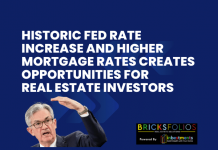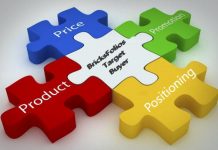Tears, relief, gratitude, and an end to a long, hard road in sight.
On 15th December 2020, Seattle hit a historic milestone as around a dozen health care workers and first responders were vaccinated against Covid-19 in what was the first run of vaccinations.
With a total of 205,069 cases, 12,649 hospitalizations, and 2,953 deaths in Washington state as of 15th Dec 2020, what does the vaccine rollout could mean for the Seattle housing market?
Before we delve into that, let’s see how the housing market fared last month.

Supply down, sales and prices are up
The saga of acute low inventory continued with available inventory dropping by 53.8% compared to the same time last year. On the other hand, brisk sales continue unabated with Closed Sales up by almost 23% on a year on year basis. The lack of inventory is making potential sellers think twice, knowing their search for a new home could be tough.

One indicator of the sales brisk activity is the ratio of pending sales to new listings. November’s 8,584 pending sales outgained the month’s new listings at 6,425 area-wide. This pattern was interrupted this year only in the months of March and April when the stay-at-home orders were in vogue.

Even in our white-hot housing market, savvy High Networth Individuals (HNIs) and investors are lapping up the Cash flow rentals, while taking advantage of the historic low-interest rates.
Jo Dixit, Designated broker & CEO Bricksfolios.com, a wealth-focused brokerage.
Interest rates at record lows
Mortgage interest rates have set record lows more than a dozen times this year, and last week there was yet another. Rates on a 30-year fixed-rate mortgage fell to their lowest level, at 2.71%, for the 14th time this year.

HNI and Millennial Clients driving demand for Real Estate Agents and Loan Officers
“Our team has never been so busy with the tremendous demand from the real estate agents and loan officers whose Millennial clients are buying their first home, while their HNIs (High Networth Individual) clients are looking to diversify their portfolio by adding income-producing properties. Of course, the HNIS are looking for a stable asset class vis-à-vis the volatile stocks based investments”, said Vinod Sharma, who is the CEO of www.inBestments.com, USA’s first residential real estate wealth platform that enables the buyers and the homeowners to look at the homes from the prism of wealth, and helps them #BuildWealth with hyper-personalized insights.
COVID-19 vaccine and the Seattle housing market?
COVID-19 has dramatically changed the landscape of the housing market. With low mortgage rates locked-in and a desire for more space amid the pandemic, buyers flooded the housing market in search of bigger homes, away from the crowded urban areas. Now, with vaccine on the horizon, many people are wondering what could it mean for Seattle’s housing market. When “normalcy” begins, whether it’s six months from now, or a year or more from now, what happens to mortgage rates and housing when it returns? No one can be certain but most experts agree there are a few things we can count on.
WFH Trend will continue.
COVID-19 taught us the importance of home and home life. Working from home (WFH) eliminated long commutes and gave us some of our time. Despite all the complications of WFH, buyers are looking for homes with a big backyard and space for a home office. The big tech companies in the Seattle area have already announced plans which allows their employees to continue to work from home in a hybrid model.
People should return to urban areas
Some of the pandemic-driven housing trends with people seeking out larger homes in less dense areas could slow down. People, especially Millenials, will likely return to the urban areas. As the pandemic comes to an end, condos and apartments will see increased activity, sales, and appreciation.
Inventory will increase
Potential sellers who hunkered down to ride out the pandemic could be more willing to host open houses and make a move themselves. This will help alleviate some of our inventory woes.
Foreign buyers return
Before the pandemic hit, there was a significant presence of foreign buyers in our market. A vaccine could also lead to non-US buyers returning to the market, which would increase the buyer demand.
Mortage rates will likely go up
As life gets back to the new normal, people will start spending more, traveling more, eating out more, and doing everything else that stimulates the economy. A stronger economy likely means interest rates may start to rise from our present historic lows.





